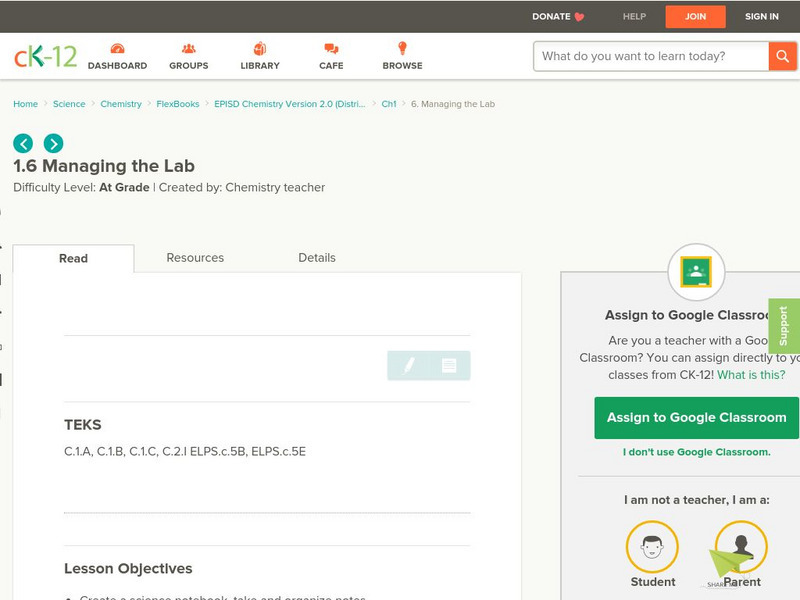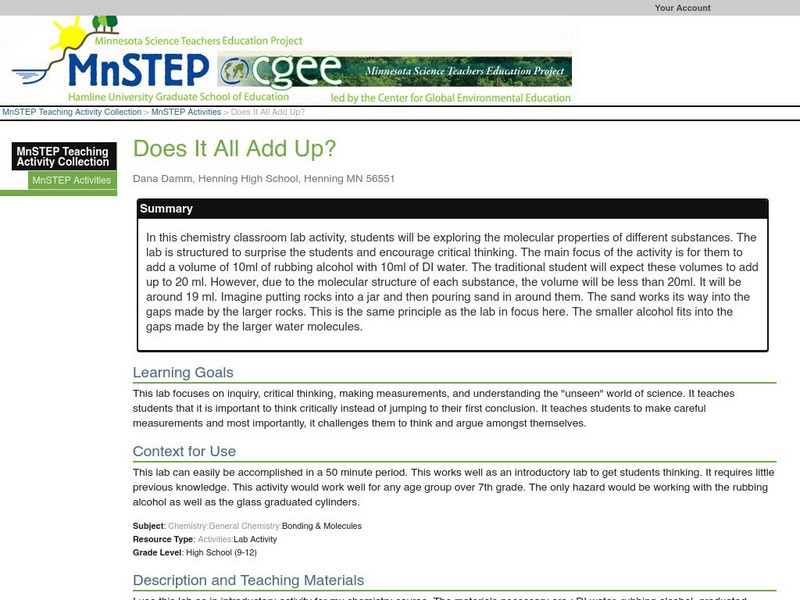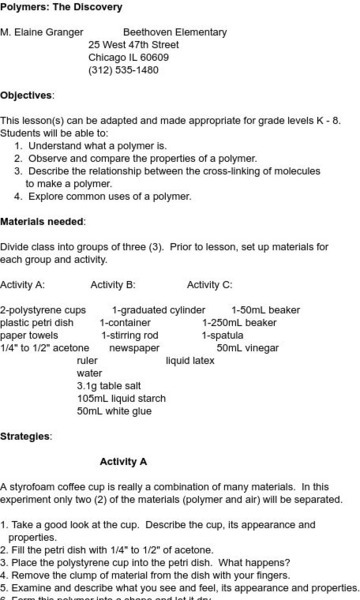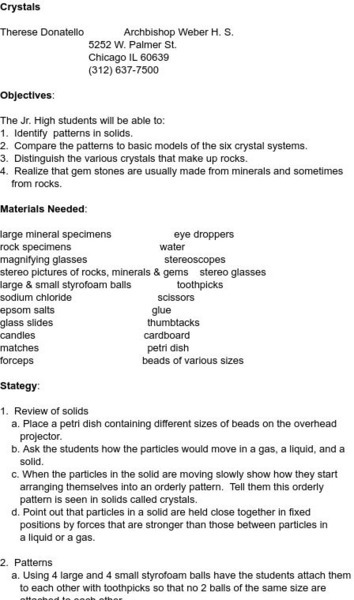CK-12 Foundation
Ck 12: Safety
[Free Registration/Login may be required to access all resource tools.] In the following online tutorial students will explore safety practices and rules and symbols associated with them. They will define components of the NFPA Label and...
Curated OER
Science Kids: Science Images: Test Tubes
A simple overhead photo of a group of test tubes, similar to something you might see in a high school chemistry lab.
US Department of Labor
Bureau of Labor Statistics: Medical and Clinical Laboratory Technician
This resource provides information on the Clinical Laboratory Technician career. Employment projections and anticipated workforce trends are included with brief descriptions of the nature of the work, working conditions, and training...
University of Nebraska
Do Chem: Simple Heat of Acid Base Reaction
A simple lab activity that allows good data collection on heat of solution.
University of Nebraska
Do Chem: Graham's Law
A lab setup, fairly simple, to illustrate Graham's Law. Check it out!
Science Education Resource Center at Carleton College
Serc: Determining the Density, P H and Water Content of Various Area Soils
In this chemistry field lab, students will determine the density, pH, and water content of 4 types of soil. Students compare class data and write a lab report describing their results and then analyze their findings to report on the...
Science Education Resource Center at Carleton College
Serc: Investigating Metal Activity: Determining the Activity Series of Metals
In this chemistry laboratory, students will investigate the activity of 4 unknown metals and rank them according to their activity. In order to achieve this objective, students will be combining a 1M HCl solution with each metal and...
Massachusetts Institute of Technology
Mit: Open Course Ware: Courses: Polymer Science Laboratory
College-level chemical engineering course highlighting polymers. Course topics focus on the range of properties of polymers, methods of synthesis, and physical chemistry. Course features include a list of related readings and a large...
Science Education Resource Center at Carleton College
Serc: Does It All Add Up?
In this chemistry classroom lab activity, students use critical thinking to investigate the molecular properties of different liquids: rubbing alcohol and water.
Alabama Learning Exchange
Alex: Writing Word Equations
The students will learn to write word and formula equations. We will watch a web video about chemical equations. We will then complete the science in motion lab "The Color of Chemistry". The students will also be required to write word...
Science and Mathematics Initiative for Learning Enhancement (SMILE)
Smile: Polymers: The Discovery
A simple lab activity which introduces the field of polymer chemistry. Includes the use of polystyrene in a neat reaction.
Science and Mathematics Initiative for Learning Enhancement (SMILE)
Smile: Crystals
From the Science and Mathematics Initiative for Learning Enhancement (SMILE) program. A lesson plan in which students study and model crystal patterns, properties, and structures. Utilizes real samples of crystals and styrofoam balls.
Science Bob Pflugfelder
Science Bob: Homemade Slime!
Contains a procedure for creating slime -- a polymer formed by mixing water, borax, Elmer's glue, and food coloring. Following the procedure, the site contains a brief description of what polymers are.
University of Nebraska
University of Nebraska: Determining a Molecular Formula
This is a seven part site from the University of Nebraska on molecular formulas. Sections are: Introduction, Purpose, General Safety Considerations, Procedure, Data Analysis and Concept Development, Implications and Applications,...
Other popular searches
- Acid Base Chemistry Labs
- Chemistry Labs of Hydrates
- High School Chemistry Labs
- Christmas Chemistry Labs
- Thermo Chemistry Labs
- Holiday Chemistry Labs
- Introduction Chemistry Labs
- Therm Chemistry Labs
- Online Chemistry Labs
- Chemistry Labs With Candy











